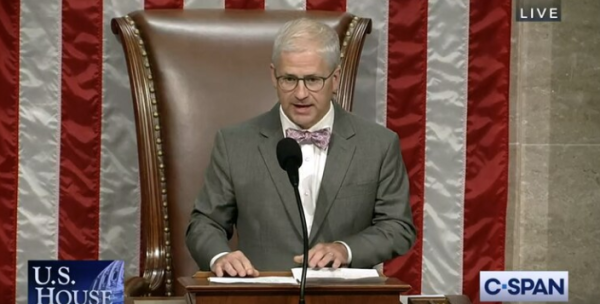
The process of relocating the antiquities that were temporarily detached, during the construction works, at the Venizelos Station of the Thessaloniki Metro is progressing within the planned schedule, as stated in a statement by the Ministry of Infrastructure and Transport.
Indeed, in an on spot check that Minister of Culture and Sports Lina Mendoni and the Deputy Minister of Infrastructure Giorgos Karagiannis carried out at the station, they expressed their satisfaction with the course of the relocation work.
“The city’s long history is preserved”
As the Minister of Culture and Sports Lina Mendoni stated, “When in 2020 we started the temporary deployment of the antiquities at the Venizelos Station, we had committed that within specific timeframes the deployed antiquities would return to their exact location, based on the principles of science and ethics, constituting a unique monumental ensemble within the Station shell. Two years later, and earlier than originally planned, we are proving consistent. With absolute respect for the institutional framework and the Law for the Protection of Antiquities, but also for the needs of Thessaloniki and its inhabitants, we are completing an extremely complex archaeological project in the urban fabric of Thessaloniki, the like of which has not been realized until today. Complete studies were prepared for all the necessary and legally prescribed stages, for the entire process of the removal and relocation of the antiquities under the continuous and uninterrupted supervision of the Ephorate of Antiquities of the City of Thessaloniki and the close cooperation of the relevant Departments of the Ministry of Antiquities. The studies received the positive opinions of the Central Archaeological Council, but also the positive judgment of the plenary session of the Council of State, to which those who ideologically opposed the construction of the station and the completion of the project appealed. Those who inaugurated tarpaulins and those who considered unsigned scribbles as studies. Thanks to the daily systematic cooperation of the Ministry of Culture with Attiko Metro and its partners, a school for the management, documentation, protection and promotion of the cultural stock is being created in Thessaloniki, in the context of the construction of a large and complex technical project.

We preserve and highlight the evidence of the city’s long history – from its founding by Kassandros to the last centuries – with pioneering and innovative solutions, utilizing modern techniques and technologies. Thessaloniki, at the end of 2023, will be the first, as it will have an extensive archaeological site integrated into the station shell. We practically show our respect for the past, present and future of the city and its citizens.”
Highlighting the antiquities
The Deputy Minister of Infrastructure, Giorgos Karagiannis, said “With the return of the antiquities to the Venizelos Station, we are achieving an important milestone for the Thessaloniki Metro. This great enterprise is being developed with the utmost attention from Attiko Metro to highlight the antiquities and essentially the great history of the city. According to the schedule, the relocation of the detached antiquities at Venizelos Station will be completed by the end of November 2023. At the same time, the construction of its dock, the placement of the infrastructure has been completed on either side, as well as its power supply. We have now taken delivery of all 18 state-of-the-art driverless trains, and trial runs are underway along the entire length of the baseline. So, we are making reality what some claimed was impossible because we believe that large technical projects such as the Thessaloniki Metro can coexist with antiquities as long as there is the political will and know-how to achieve practical and applicable solutions. Thessaloniki will have one of the most modern Metros in Europe, just as we promised.”
Record
At the Venizelos station the excavation survey was completed on 31 July 2022 and the repositioning, which was scheduled for 31 March 2023, started ahead of schedule on 23 March. According to the decision of the Central Archaeological Council, 92% of detached antiquities are reinstated. A specific methodology was followed for the detachment, with full observance of the rules of art and science, taking into account the particularity, uniqueness and importance of the specific undertaking.
The first phase of the excavation at Venizelos Station was completed in 2012, with the uncovering of a part of the city from late antiquity and Byzantine times. The first time that the matter of Venizelos Station was introduced to the Central Archaeological Council for an opinion on the fate of the antiquities was in January 2013, when it was decided to detach and reposition them in the same or another place. In September 2019, Attiko Metro brought to the Ministry of Culture and Sports a proposal for the separation of the antiquities, contrary to the decision made in 2017, for the antiquities to remain by country. This report was signed by all the executives of the company, in contrast to what was submitted in 2017 and on which the Central Archaeological Council gave an opinion, apparently, without any signature on the studies. In December 2019, the Central Archaeological Council gave an opinion in favor of the solution, which was filed for temporary detachment and relocation. The Ministerial Decision issued in March 2020 was appealed to the Council of State. The choice of the specific methodology, which protects and highlights the antiquities, was subsequently justified by the Plenary Session of the Council of State, in December 2022, with the rejection of the cancellation requests, which had been brought by associations and individuals.
At the Venizelos Station, the whole of the oldest infrastructural and temporal phases of Thessaloniki, from the Hellenistic years, is documented in an exemplary fashion. With the research that was carried out, until recently unknown archaeological fields were researched as, after the removal of the layers of late antiquity, antiquities from Roman times were investigated. The area of Venizelos Station is 1,260 sq.m. however, the archaeological research covered at least 3,500 sq.m. The founding phase of the city of Cassander was revealed, which developed according to the Hippodamian system, on the same road axes, with minor displacements. The layers of the Hellenistic and Roman central street were revealed, which was flanked to the south by the pillared portico, which ensured access to buildings.
Latest News

Airbnb: Greece’s Short-Term Rentals Dip in March Amid Easter Shift
Data from analytics firm AirDNA shows that average occupancy for short-term rentals dropped to 45% in March, down from 49% the same month last year.

Easter Week in Greece: Holy Friday in Orthodoxy Today
At the Vespers service on Friday evening the image of Christ is removed from the Cross and wrapped in a white cloth

Meloni and Trump Meet in Washington, Vow to Strengthen Western Ties
“I am 100% sure there will be no problems reaching a deal on tariffs with the EU—none whatsoever,” Trump stressed.

ECB Cuts Interest Rates by 25 Basis Points in Expected Move
The ECB’s Governing Council opted to lower the deposit facility rate—the benchmark for signaling monetary policy direction—citing an updated assessment of inflation prospects, the dynamics of underlying inflation, and the strength of monetary policy transmission.

Current Account Deficit Fell by €573.2ml Feb. 2025: BoG
The improvement of Greece’s current account was mainly attributed to a more robust balance of goods and, to a lesser extent, an improved primary income account

Hellenic Food Authority Issues Food Safety Tips for Easter
Food safety tips on how to make sure your lamb has been properly inspected and your eggs stay fresh.

Greek Kiwifruit Exports Smash 200,000-Ton Mark, Setting New Record
According to data by the Association of Greek Fruit, Vegetable and Juice Exporters, Incofruit Hellas, between September 1, 2024, and April 17, 2025, kiwifruit exports increased by 14.2%.

Easter Tourism Boom: Greece Sees 18.3% Surge in Hotel Bookings
Among foreign markets, Israel has emerged as the biggest growth driver, with hotel bookings more than doubling—up 178.5% year-on-year.

Greece to Launch Fast-Track Tender for Offshore Hydrocarbon Exploration
Last week, Papastavrou signed the acceptance of interest for the two Cretan blocks, while similar decisions regarding the two Ionian Sea blocks were signed by his predecessor

American-Hellenic Chamber of Commerce to Open Washington D.C. Branch
AmCham's new office aims aims to deepen U.S.-Greece economic ties and promote investment and innovation between the two countries








![Πλημμύρες: Σημειώθηκαν σε επίπεδα ρεκόρ στην Ευρώπη το 2024 [γράφημα]](https://www.ot.gr/wp-content/uploads/2025/04/FLOOD_HUNGRY-90x90.jpg)




![Airbnb: Πτωτικά κινήθηκε η ζήτηση τον Μάρτιο – Τι δείχνουν τα στοιχεία [γράφημα]](https://www.ot.gr/wp-content/uploads/2024/07/airbnb-gba8e58468_1280-1-90x90.jpg)

























![Airbnb: Πτωτικά κινήθηκε η ζήτηση τον Μάρτιο – Τι δείχνουν τα στοιχεία [γράφημα]](https://www.ot.gr/wp-content/uploads/2024/07/airbnb-gba8e58468_1280-1-600x500.jpg)


 Αριθμός Πιστοποίησης
Αριθμός Πιστοποίησης